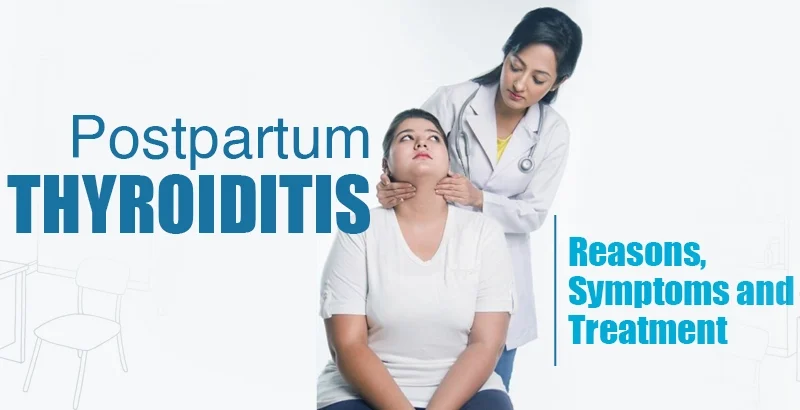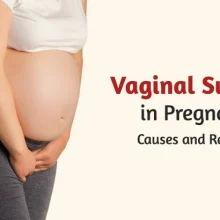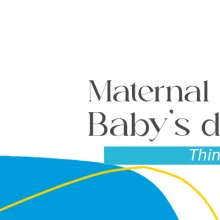Postpartum Thyroiditis: Reasons, Symptoms and Treatment

During the nine months of your pregnancy, your entire body and mind worked very hard to nurture another life inside you to give birth at the end of your pregnancy.
During childbirth, going through tremendous pain and feeling very tired both in your body as well as your mind is common. Health conditions like diabetes, hypertension, and thyroid are also some of the natural occurrences.
The thyroid – a small, butterfly-shaped gland located in the front of the neck – is a hormone that travels through the bloodstream and spreads across all the other parts of the body to keep the body process in control and to make you stay warm.
Postpartum thyroiditis, however, impacts a very small percentage of new moms – that is 5% to 10% of you suffer from postpartum thyroiditis. In this condition, you may either suffer from hyperthyroidism (releases too many hormones) or over time you may undergo hypothyroidism (releases enough hormones).
What are the Causes of Postpartum Thyroiditis?
Although experts are still studying the reasons behind postpartum thyroiditis, Hashimoto’s thyroiditis is believed to be an autoimmune disease, mostly associated with the presence of anti-thyroid antibodies. Antibodies are those proteins produced by your immune system that create viruses, and bacteria.
In the case of postpartum thyroid, antithyroid antibodies attack the thyroid gland, thus giving rise to thyroid gland dysfunction and inflammation.
Apart from Hashimoto’s thyroiditis, there are other factors involved too. The risk factors include:
- If the presence of anti-thyroid antibodies before you hit the pregnancy journey, and you proceed with your pregnancy without having to notice the signs of it, your chances of postpartum thyroiditis are higher.
- If you’ve suffered from Type 1 Diabetes during pregnancy, it can lead to postpartum thyroid. How? Gestational diabetes is defined by glucose intolerance at the onset of your pregnancy. Due to the physiological changes during pregnancy, there is an increased insulin resistance. Relative pancreatic insufficiency develops too. Type 1 diabetes during pregnancy remains a permanent problem after.
- Hypothyroidism is most linked with immunological aetiology, as well as thyroid nodules. Therefore, lupus during pregnancy is correlated to preterm delivery and postpartum thyroid.
- Additionally, 10% to 15% of you may have episodes of postpartum depression four weeks after giving birth to the baby. Various studies have revealed that postpartum mood disorders are accompanied by thyroid issues after childbirth.
- If you have had a family history of thyroid disease.
- If you had thyroid in your previous pregnancies.
What are the Symptoms of Postpartum Thyroiditis?
Since visiting the healthcare practitioner is the norm during pregnancy, with every passing trimester you may have to undergo various pregnancy blood tests. You will undergo three levels of thyroid hormonal checking like T3, T4, or TSH to understand the symptoms of thyroid after the delivery of your baby.
As has been mentioned previously, there are two types of thyroid – hyper and hypothyroidism.
Signs of Hyperthyroidism
This is the first phase of the thyroid, which stretches between two and six months after childbirth and lasts up to three months. You’d have to suffer from:
- temporary, and mild weakness of the muscles
- heat intolerance
- feeling of anxiety or irritability
- loss of hair
- thinning of the hair
- Loss of weight
Signs of Hypothyroidism
In the phase of hypothyroidism – from three to eight months after childbirth, you’d feel:
- Your skin is to be dried
- Tired
- Forgetful
- Weak in the muscles
- Aching in the body
- Tingling sensation near the joints
- Depressive
- Weight gain
While 80% of you can resume normal thyroid function between 12 and 18 months after childbirth, 20% of you can develop easily treatable hypothyroidism.
How to Get Postpartum Thyroiditis Treated?
Postpartum thyroiditis doesn’t stay for long. It fades away very soon.
But there are treatments available for both cases – for hyperthyroidism (mild) as well as hypothyroidism (overactive) cases.
You wouldn’t need any medicines, except your healthcare practitioner will take a few tests for monitoring this condition, in case of hyperthyroidism (mild thyroid), which is neither high nor low. In case of hypothyroidism (overactive), your healthcare practitioner will give you medicines to prevent you from inflammation.
Experts from the National Institute of Diabetes and Digestive and Kidney Diseases (NIDDKD), the medicines that you must manage thyroid levels after childbirth reach the child through your breastmilk. Along with the prescribed medicines, according to the experts, you would need to include the right sources of iodine from dairy products, eggs, meat, etc.
Postpartum health conditions are a few things you can’t forego. You need to accept the challenges and move on with them as thyroid may be a permanent problem.
Daily check-ups, the right medicines, and the right diet may help you keep your thyroid under control.


